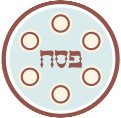
Each year at Passover, Jews read this line in the haggadah, "In every generation a person is obligated to see themselves as if they had left Egypt." Why? Because each of us should understand that in our generation, just as in our ancestors' generation, the status quo is not inevitable. Societies founded on inequality, on domination of others, on ruling those who do not wish to be ruled cannot, in the arc of history, last. In every generation there is a wrong to be righted. Today, it is in our hands to right it.
This year, you can add flavor to your seder by sharing this thoughtful reflection by Rabbi Fred Scherlinder Dobb. Rabbi Dobb, who has written previously for Americans for Peace Now, has graciously contributed our 13th haggadah insert. In it, he asks us to make peace with the idea of limits.
Since 2001, Americans for Peace Now has asked rabbis from the extended APN family to contribute reflections on the haggada: that story which has for centuries been understood as the archetype of liberation. Many of us have made these reflections a permanent part of our seder - we hope you will, too. You can find them here.
May we all enjoy a sweet and liberating Passover,

Debra DeLee
President and CEO,
Americans for Peace Now
Submitted by Rabbi Fred Scherlinder Dobb (2014)
To be read after the meal, just before the search for the afikomen. (Tzafun)
We have eaten our fill, and been satisfied. To eat more would be folly, despite the temptation of another helping -- if we ingest too much, we undo this seder's blessing of abundance. Now, with the afikomen, we put the Shulchan Orech (i.e. the meal) behind us, and make peace with the idea of limits.

The food we've eaten is fit for the festival because of its limited ingredients. We may desire chametz (that which is puffed-up), but we know tonight that it should not be on our table. The meal is made meaningful through its boundaries. On Pesach, we embrace necessary limits.
The matzah, broken earlier and tucked away, must be shared all around the table. The afikomen starts as less than a whole sheet, and gets further divided, yet we are happy with our portion; with it, we move on to blessings and songs and togetherness. Tzafun ends the meal with an echo of “dayenu”, an embrace of limits.
"One who tries to take too much, ultimately keeps nothing (tafasta meruba, lo tafasta)", teaches our tradition. Where are we attempting to hold onto more than we should?
This Pesach, let us learn to love living within the lines -- Green Lines, and other necessary boundaries. Let us embrace the spirit of dayenu. By ensuring “enough” for everyone, may our own abundance endure.
Click here to see all the haggadah inserts from previous years.